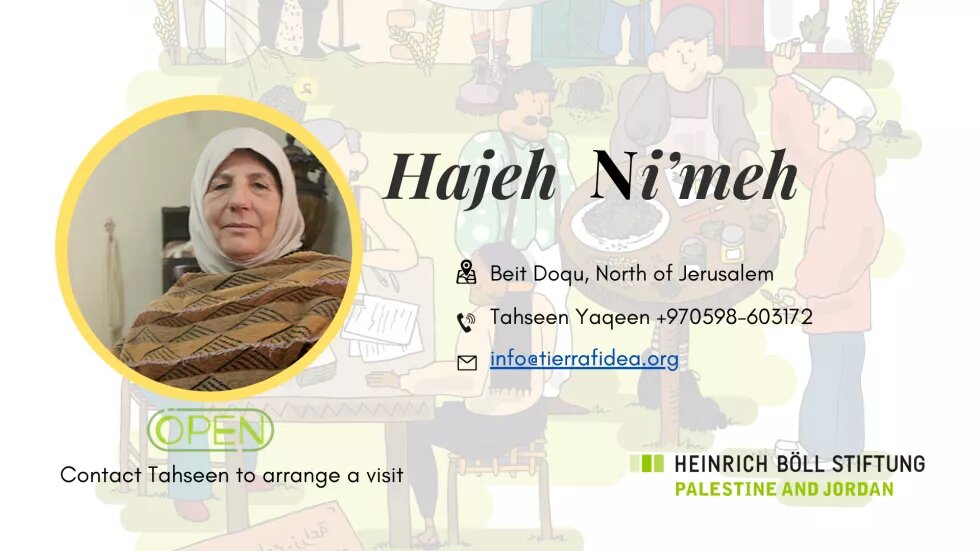
The most prominent figure of Beit Doqu and possibly the oldest environmentalist in Palestine is Hajeh Ni’meh. We met her while she was picking up litter from the street near her house. She is a true activist who goes the extra mile to live up to her beliefs and principles. She has gained wide media attention for being a guardian of the land. During protests against the construction of the Segregation Wall, Hajeh Ni’meh showed incredible courage and determination by climbing up a bulldozer in an attempt to stop its uprooting of olive groves and destruction of ancient terraces.
Her love for the land runs deep, as she had many responsibilities from a young age to help her father in the field, along with taking care for her younger siblings. Her family, the Yaqeens, are fervent believers in education, which is why Ni’meh attended school in Shu’fat at a time when not many girls received an education. Sometimes she would sell produce or run errands for her father after school.
A brilliant storyteller and a true environmentalist, Hajeh Ni’meh admits that she loses sense of time when in the field and her love for her trees is so immeasurable that does not tire from working. Her family home is full of traditional knowledge and tools; from the ancient pottery jars to the cellar where all the year’s Mouneh (typically olives, olive oil, almonds, walnuts, pulses, etc.) are stored. The latter is a space created in the traditional building style to have the cool environment specifically intended for storage of food.
Her skills in trade lend her a reputation of being a good business woman and she puts up a hard bargain while selling her sweet and delicious grapes, which the village of Beit Doqu is famous for. Hajeh Ni’meh represents a walking, talking, living museum of what life in Palestine used to be like. She exemplifies what land means to Palestinians and all the values of living a balanced rich life that is in harmony with nature.
Visitors are welcome to stay with Hajeh Ni’meh’s family and volunteers are welcomed in May, August and October to help in the grape and olive harvests.
____________________________________________________
Other Services: Hosting small groups, accommodation.
Volunteering Opportunities: Support in harvests in May, August, and October.